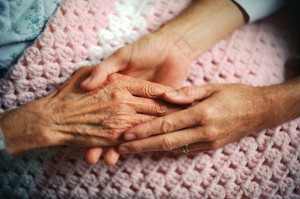-
Advocacy Theme
-
Tags
- Abortion
- Adoption
- Caregiving
- CEDAW
- Disability
- Domestic Violence
- Domestic Workers
- Harassment
- Healthcare
- Housing
- International/Regional Work
- Maintenance
- Media
- Migrant Spouses
- Migrant Workers
- Muslim Law
- National budget
- Parental Leave
- Parenthood
- Polygamy
- Population
- Race and religion
- Sexual Violence
- Sexuality Education
- Single Parents
- Social Support
- Sterilisation
- Women's Charter
The privilege of care and the right to rights
March 16th, 2012 | News, Older People and Caregiving, Poverty and Inequality, Views
The following commentary was published in Today on March 16. Read the published version here.
By Dr Teo You Yenn & Dr Vivienne Wee
Since the announcement of mandatory weekly days-off for foreign domestic workers, the media have been abuzz with debate. Many have applauded the decision, but there have also been complaints that reveal a prejudice that domestic workers are different from “us.”
These negative reactions indicate an over-reliance on domestic workers to do the work that “we” are in fact responsible for. Second, they expose a fundamental lack of appreciation for international norms and indeed signed agreements between our state and other states regarding human/workers’ rights, and how these matter to “us.”
In a letter to the Straits Times, published online on March 9, 2011 (“Maid may have to do double the work the next day”), the writer asks without irony: “Who will do the chores and look after the children and the elderly when the maids are enjoying their days off?”
What does it take to pose this question? It takes a mindset that regards care of one’s own offspring as tedious, beneath oneself, and rightfully the responsibility of a hired woman. It misconstrues filial piety as a burden that has little to do with care as expressed in physical contact, and everything to do with contracting out what one doesn’t want to do.
The over-reliance on domestic workers has serious consequences for how we think about the care of those we love. First, when workers are too easily exploitable, they end up doing all the bathing, feeding, and other daily “chores.”
It is easy to mistake such activities as peripheral to love and relationships rather than seeing these as integral. As a result, the love of parents for children and the love of sons and daughters for elderly parents are truncated into intermittent acts of having family meals, shopping expeditions, visits to the doctor, with their daily needs reduced to matters fit only for the attention of “the maid.”
Caregiving requires knowledge. What annoys or upsets an old person, which foods are easier for them to swallow, what clothes they prefer to wear on what occasions—these are things we have to learn. How to get a child to sit still at mealtimes, how they like their hair washed, how to convince them to do their homework before going out to play—these require experience. These knowledge and experiences accumulate when we give care in ways beyond sitting down to that much-lauded family dinner.
Caregiving is work: that is true. But it is also a privilege, and we should not give it up so willingly just because we do not enjoy wiping our children’s bottoms or pushing wheelchairs around the block.
Beyond the issue of caregiving as privilege and the problematic eagerness to give it up, there are also international norms and conventions. We should be glad that Singapore society is mature enough to adhere to globally recognized norms about the rights of workers and human beings. These are rights that our state has signed up to uphold as a member of the international community, including the Convention for the Elimination of All Forms of Discrimination Against Women (CEDAW).
In July 2011, in their Concluding Comments, the CEDAW Committee at the United Nations urged the Singapore Government to “review and amend the existing labour legislation in order to apply to foreign domestic workers, or adopt new legislation ensuring that foreign domestic workers are entitled to adequate wages, decent working conditions, including a day off, benefits, and access to complaint and redress mechanisms.”
We talk a great deal about being “global” and standing by “international standards.” Integral to being member to the global community is to play by a set of ethical rules. In recent years, Singaporeans have made claims that we deserve expanded freedoms, equality and access to social goods. These are claims rendered legible and legitimate by human rights frameworks. We cannot make these claims selectively, without respect for other rights that are part of the package of ethical norms.
We should applaud the state’s actions in taking one step in recognizing the rights of foreign domestic workers. We should applaud it as proud members of a global community with shared norms about fairness and justice. When we do, we are recognizing that the compromised rights of various members of society are not just “their” problem but “ours.” The rights that protect them come from the same body of rights that protect us.
We should not give up our privileges, responsibilities, and hard-earned rights, for a few more hours of leisure on Sundays.
Teo You Yenn is a sociologist and Board member at AWARE. Vivienne Wee is an anthropologist and Research and Advocacy Director at AWARE.




